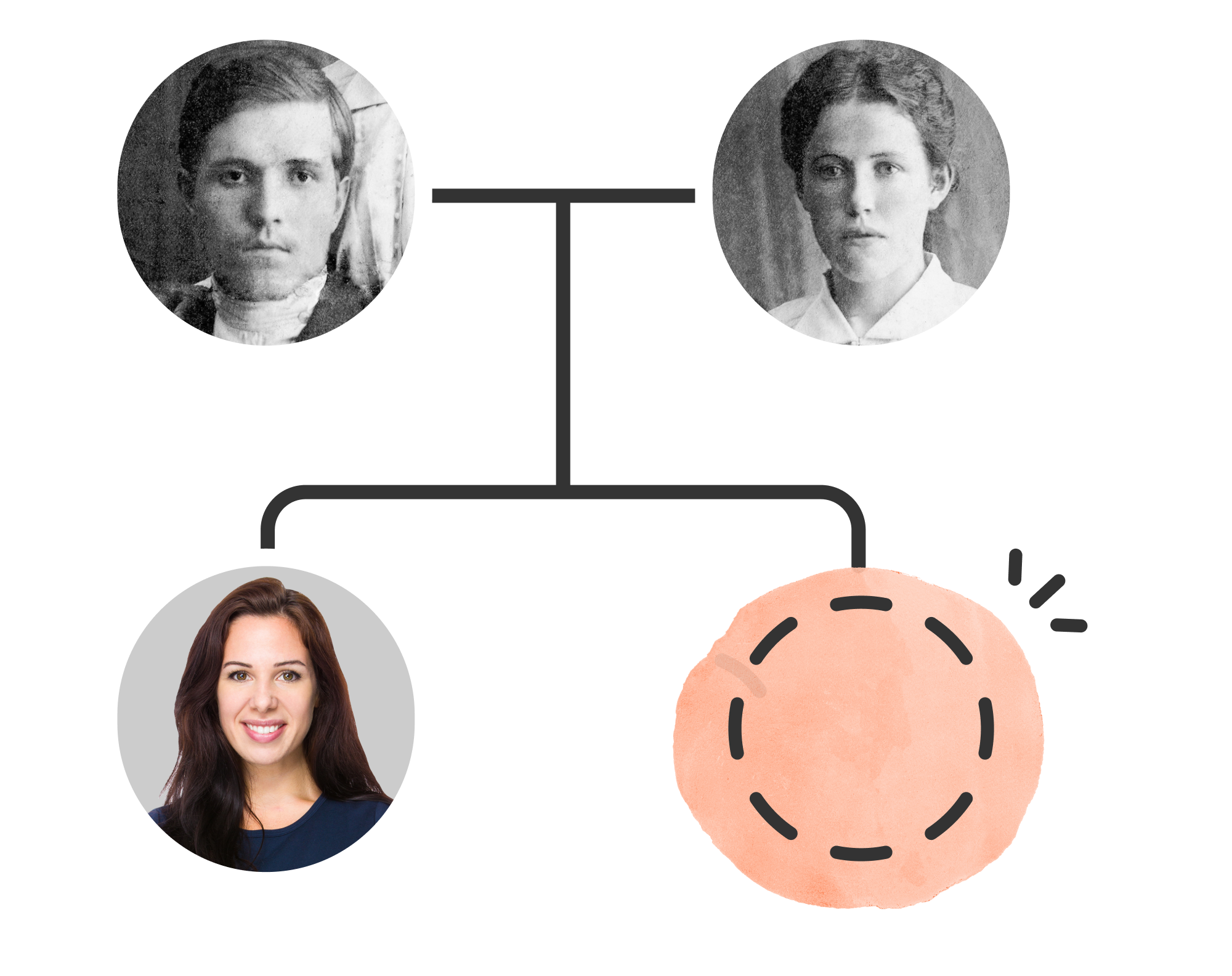
Gathering information from relatives is a crucial first step in genealogical research, as it can provide photos, documents, and other records that may not be available from any other source. Here are some tips on how to effectively gather information from your relatives.
Begin your family history conversations with relatives by asking open-ended questions and encouraging them to share stories and memories. For example, you could ask questions like "Tell me about your parents," "What was your childhood like?" or "Do you have any interesting family stories or traditions?" This can prompt your relatives to share details and anecdotes that may be relevant to your genealogy research.
Research your ancestors on MyHeritage
Tips for interviewing relatives for genealogy
- Be a good listener: When interviewing relatives, it's important to listen to their stories and memories actively. Avoid interrupting or imposing your own assumptions or interpretations. Allow your relatives to speak freely and encourage them to elaborate on details they remember.
- Be sure to have some way to record the stories told to you. With your relative's permission, consider recording your conversations with them to ensure accurate documentation of the information shared. You can use a digital voice recorder or a smartphone, but be sure to obtain consent and respect their privacy. Transcribing the recordings later can help you capture details accurately.
- Visual aids such as old family photos, documents, and heirlooms can trigger memories and provide valuable information. Bring along any relevant family photos, documents, or other items during your conversations with relatives. Ask them to identify individuals in the photos, provide context, and share any stories or anecdotes associated with the items.
How to identify important information
Ask about specific details. Depending on your genealogy research goals, you may want to ask specific questions about certain family members, events, or locations. For example, you could ask about birth, marriage, and death dates, immigration details, occupation, military service, and other specific details that can help you build your family tree and fill in gaps in your research. There are a number of guides to conducting an oral interview. One place to find this information is the Smithsonian Institution Archives, “How to do oral history.”[1]
Information privacy
Dead people do not have any privacy to protect[2] but be mindful that not all relatives may be comfortable sharing certain information or memories. Respect their privacy and sensitivities, and avoid pushing for details they may not be willing to share. Be empathetic and understanding, and reassure them that you will handle any information shared with care and respect. Be aware of cultural restrictions on some kinds of information.
Next steps
After gathering information from relatives, be sure to record and organize any information you obtain. It is also important to follow up and verify the details through other sources, such as records, documents, and other genealogical resources. This can help ensure the accuracy and reliability of the information you have gathered. It is a good idea to record the information you obtain online so others can benefit from your research. A good place to start recording is on one of the major genealogical family tree websites such as MyHeritage.com.
You should remember to thank your relatives for their stories and for their time, effort, and willingness to share information with you. Be sure to follow up by providing them with copies of any photos, transcriptions, or other documents you might obtain. Also, show appreciation for their contributions to your genealogical research, and consider sharing updates or findings with them as a way to involve them in the process and express your gratitude.
Gathering information from relatives can be a rewarding and enriching experience in your genealogy research. Approach the process with sensitivity, respect, and curiosity, and be sure to document and verify the information you collect to build a comprehensive and accurate family history.
Explore more about interviewing relatives
Here are some helpful links about oral histories and gathering information in other forms.
- Genealogy Basics Chapter 1: How to Interview Relatives on the MyHeritage Blog
- Dragging Genealogy Information Out of Your Family in the MyHeritage Knowledge Base
- Gathering Family History at Family Gatherings in the MyHeritage Knowledge Base
- “8 Ways to Gather Family History Without Hijacking a Holiday Event.” 2017. Family History Daily (blog). December 15, 2017.
- “Gather Family Information.” 2022. FamilySearch Wiki. December 7, 2022.
- “How to Begin Genealogical Research.” 2020. National Archives. December 17, 2020.
- “Oral History Interviews: Family History and Folklife (The American Folklife Center, Library of Congress).” n.d. Accessed April 18, 2023.
- “Presenting Your Findings.” n.d. Smithsonian Center for Folklife and Cultural Heritage. Accessed April 18, 2023.
- “Step-by-Step Guide to Oral History.” n.d. Accessed April 18, 2023.
- “The Smithsonian Folklife and Oral History Interviewing Guide.” n.d. Smithsonian Center for Folklife and Cultural Heritage. Accessed April 18, 2023.


